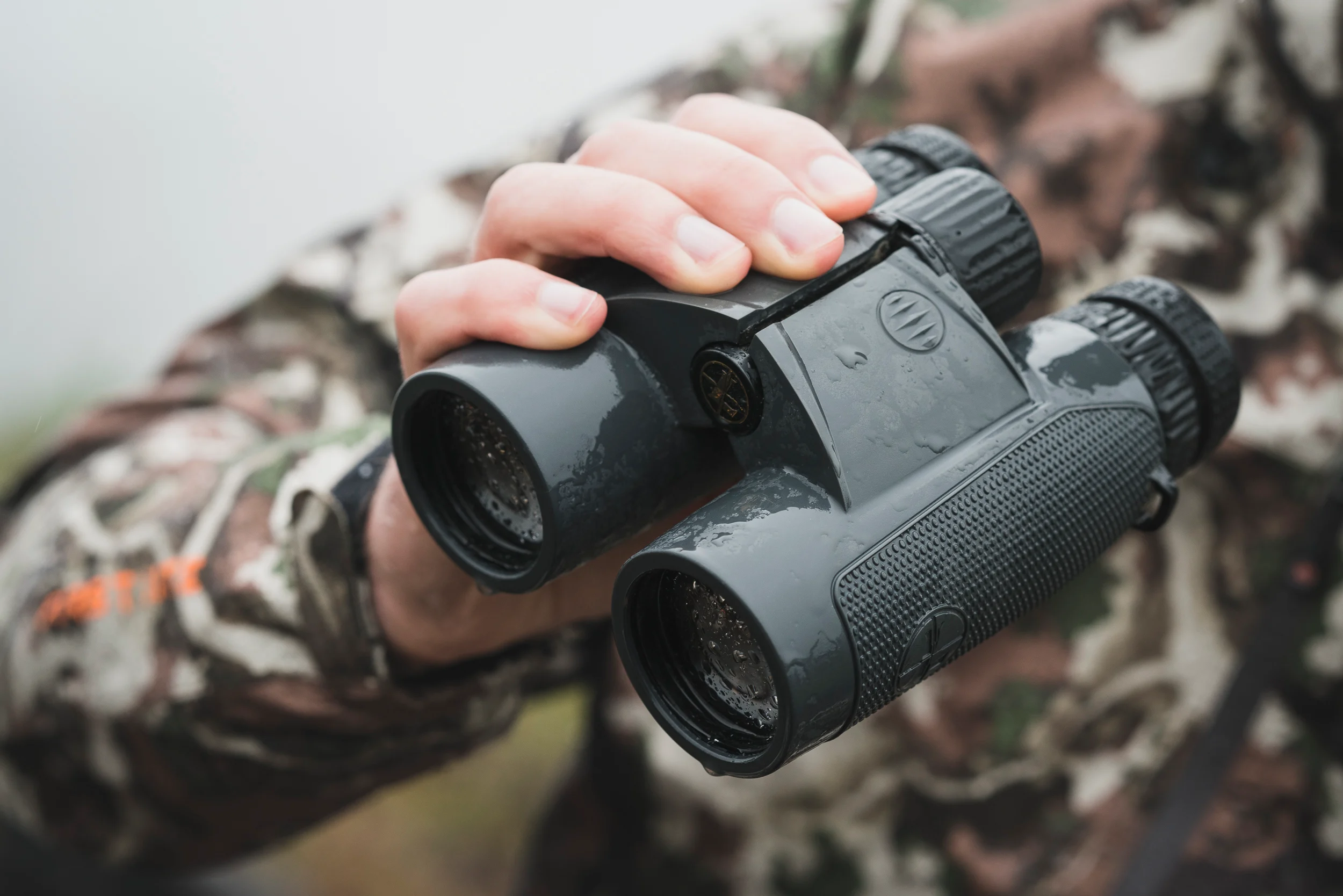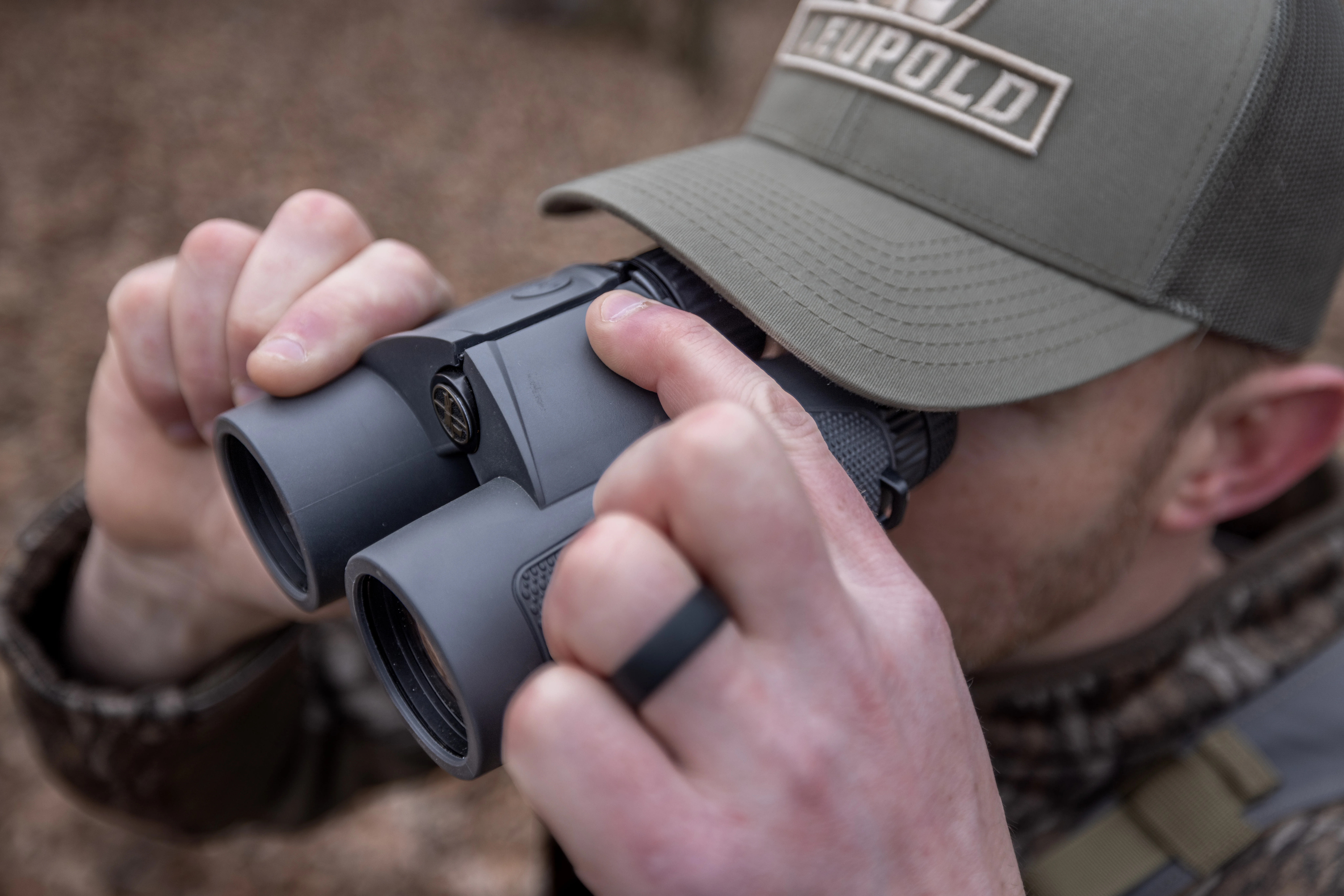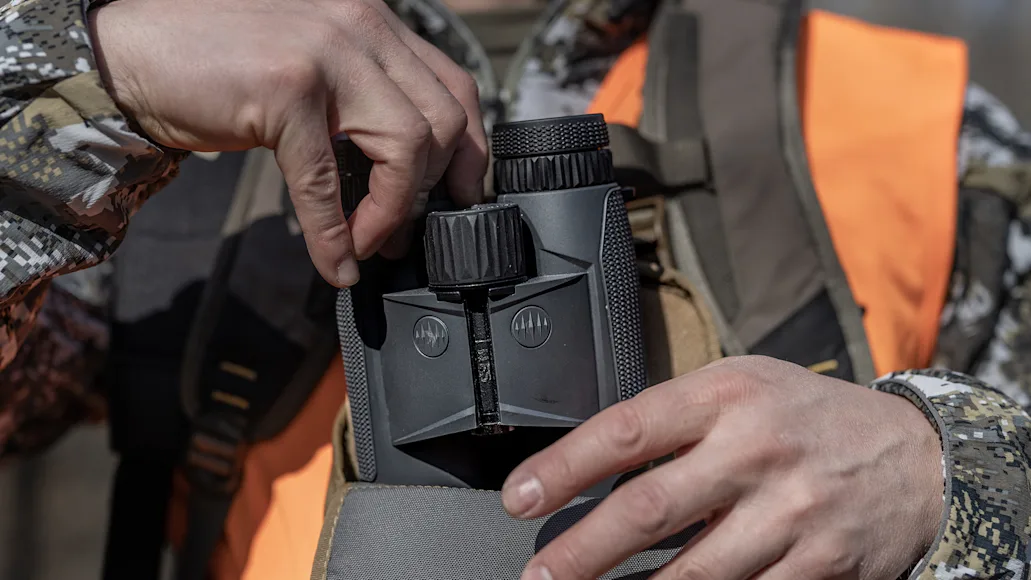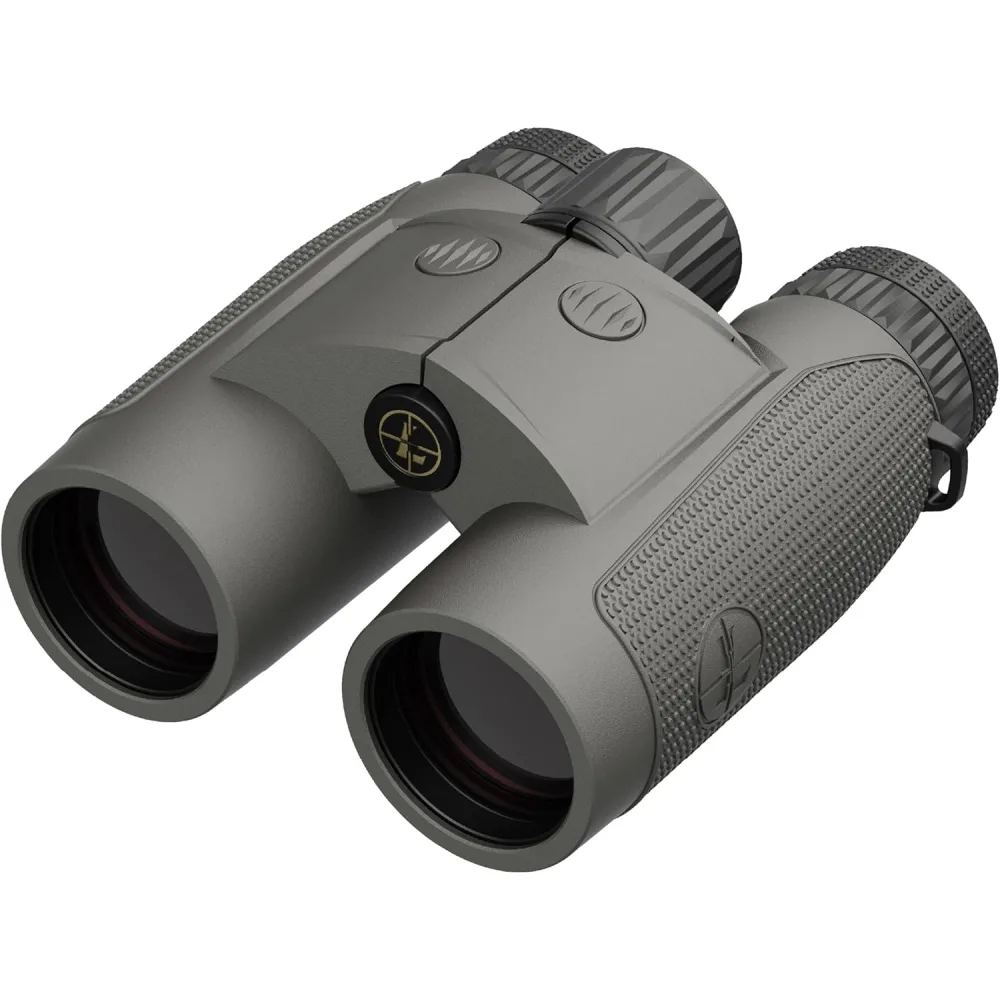The way things are going, it seems like every binocular designed for hunting will have an on-board rangefinder soon. Not long ago, there were only a handful of prohibitively expensive rangefinding binos, but now hunters have a lot more options, in wide range of price points. The new Leupold BX-4 Range HD TBR/W is the latest, and it provides a lot of quality and a handful of smart features for the money.
Leupold sent us a new BX-4 Range to test, and—just like we do with all binoculars—we put it through the wringer. Here is the full review.
Leupold 10x42 BX-4 Range HD TBR/W Specs
Length: 5.9 inches
Weight: 2.43 pounds
Magnification: 10X
Objective Lens Diameter: 42mm
Tripod Compatible: Yes, 1/4-20
Angle Compensation: Yes. in two modes, TBR/W and Bow
Ballistic Compensation Data: Yes
Battery Type: CR2
Display Type: Red OLED Display
Max Range on Deer (advertised): 1100 yards
Max Range on Trees (advertised): 1600
Max Range Reflective (advertised): 2600
Min Range (advertised): 12 yards
Price: $1,599
Leupold 10x42 BX-4 Range HD Overview

The BX-4 Range sits about as tall as a regular 10x42 binocular, and it will fit in many standard binocular harnesses and pouches. What’s nice here is that Leupold includes a decent bino harness in the box. The binocular has easily adjustable eyecups that can be removed for service or replaced if broken in the field. It also has two adjustable diopter wheels—one for each eye. The rangefinder runs on a single CR2 battery, which is installed under a screw-down cap on the focus wheel. Once screwed down, the BX-4 is advertised as completely waterproof and fogproof.
The lenses on the BX-4 Range HD are coated to be scratch and smudge-resistant. The unit has two buttons—one for selecting the Mode and the other for ranging—that can be configured for right- or left-handers. It is also tripod compatible. The glass is backed by Leupold’s lifetime warranty, and the electronics are backed by a two-year warranty.
Related: Best Binocular Harnesses for 2024—Tested and Reviewed
How We Tested the BX-4 Range HD
The bread and butter of our binocular test has always been a 1951 U.S. Air Force optical resolution test chart. This chart allows us to compare different kinds of binoculars to a standard. We set the chart at 50 yards and record the values we see to asses a binocular’s clarity. We also perform a color artifact test at 50 yards and record any perceived color shift.
Next, we take the binocular to various settings, distances, and lighting situations, observing image quality, a feeling of immersion, and noting things like blurred edges. After that, we test the binocular again on the optical resolution chart under low light conditions, using a far-away flood light to illuminate the chart in the dark.
After testing the optics on the BX-4 Range, we tested the rangefinding capabilities. We compared the ranges we got to advertised ranges on things like trees and reflective surfaces, and where it really matters, on game. For the BX-4 Range, we recorded yardages on whitetail deer at distances out to 800 yards, noting how easy and fast it was to gather a consistent range.
Finally, we torture-tested the BX-4 Range HD to see if the manufacturer's claims about extreme weather resistance are true. We completely submerged the binocular in water for 30 minutes, then checked it against the resolution chart and tested the rangefinder to see if it still worked. We then immediately put the binocular in a deep freeze for 30 minutes and recorded any changes to optical clarity, fog, etc., and tested the rangefinder again. All the while, we also evaluated build quality and how easy the binocular was to set up and use.
BX-4 Range HD Test Results

The first thing you’ll notice about the BX-4 Range HD is lightning-quick ranging. As soon as you hit the button, it spits out a range. I found it to be as fast as my Sig Sauer 10ks, which are considered some of the fastest on the market. The glass is also good quality and not tinted like some other rangefinding binos.
To test the clarity of the glass, I compared the BX-4s against a high-end, non-rangefinding binocular that cost about three times what the Leupolds do. The BX-4 and many rangefinding binos shouldn’t be able to keep up with glass like that, but it was only a few steps below the ultra-premium glass on the resolution chart. Not having tinted glass probably helped, and it went a long way toward giving true-to-life colors and a feeling of immersion under different conditions. I noticed little distortion, blurred edges, or color artifacts when looking at high-contrast colors. If I were to take the BX-4 Ranges hunting, I’d feel comfortable glassing with them all day long.

The binoculars passed the water immersion test with flying colors, maintaining clarity and complete functionality of its rangefinding capabilities. After being frozen, however, we did have some issues with fogging. You should take that with a grain of salt, though. We went from sub-zero conditions to 95 degrees F on our test day. These are conditions you almost certainly would not experience in the wild. That said, we run this same brutal deep-freeze test on every binocular we test, and some models do pass it with no problems. Compared to most, the BX-4 performed right about in the middle of the pack.
As far as ranging goes, the BX-4s worked as advertised and a bit better, nailing trees at 2000 yards instead of the advertised 1600. We did notice some issues in hazy conditions at extreme ranges—the kinds of distances 99 percent of people would never shoot. On deer, the rangefinder worked well, with the farthest animal ranged at around 780 yards. We would have gone farther, but the conditions wouldn’t allow it.
Bottom Line With the New BX-4 Range HD
If a close friend asked me if they should spend their hard-earned cash on the BX-4 Range HD, I would say do it. It’s a solid hunting tool, and when compared to other rangefinding binos on the market at a similar price, they do the job really well. Not having tinted glass goes a long way for me, especially if you’re looking for a hunting-specific binocular. All told, you’ll probably only use the rangefinding function a fraction of the time compared to the time you’ll spend glassing.
The on-board ballistic software is really geared toward hunters, too. Leupold breaks cartridges into groups with their TBR system rather than incorporating a 3rd party system like Applied Ballistics. For someone like a serious competition shooter, or someone shooting handloads, this might be a dealbreaker. But for most hunters, it would work really well. Also, the BX-4s have great in-close ranging capabilities. It’s advertised at 12 yards, but I got ranges as low as 6, making it a good fit for someone wanting to use the same glass for both bowhunting and rifle hunting.
The best thing about the BX-4 Range is its simplicity and ease of use—another reason I’d put it in the hunting camp rather than the long-range competition camp. The instructions are clear and easy to understand. Plus, the interface is very user-friendly. At the end of the day, any hunter would be well-served with the BX-4 Range HD, especially for the money.
Read Next: https: Best Binoculars of 2024, Tested and Reviewed



